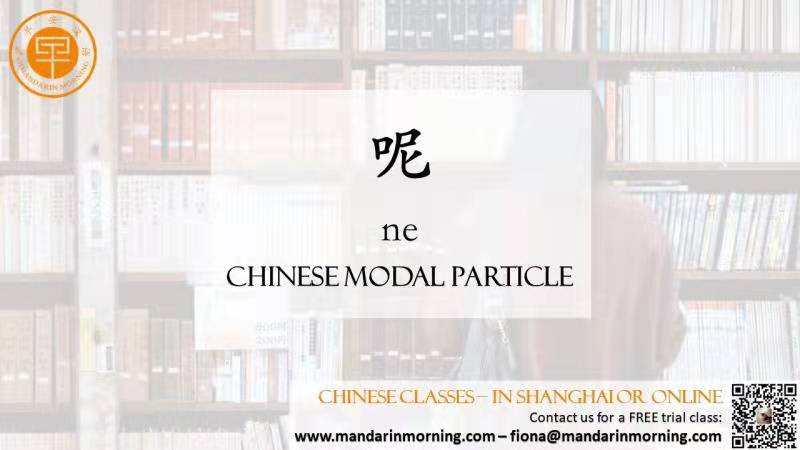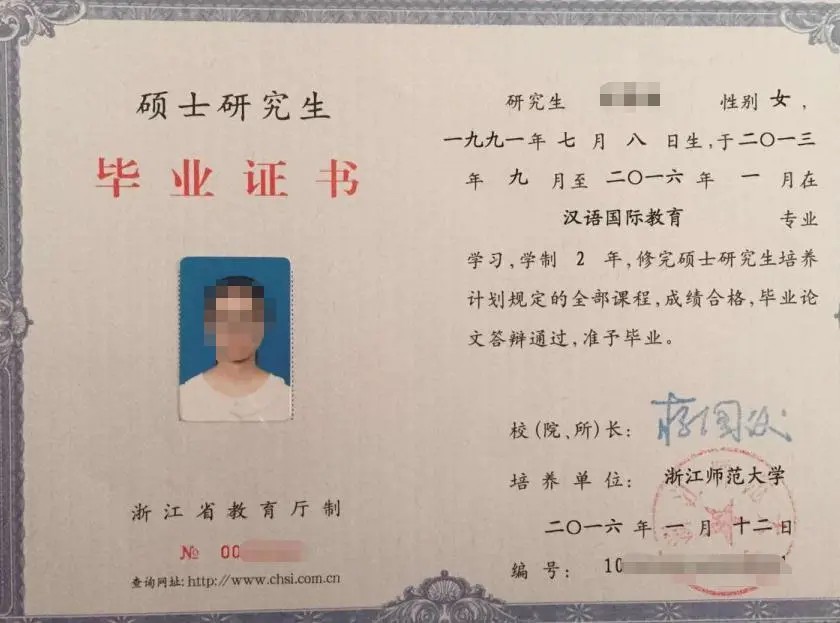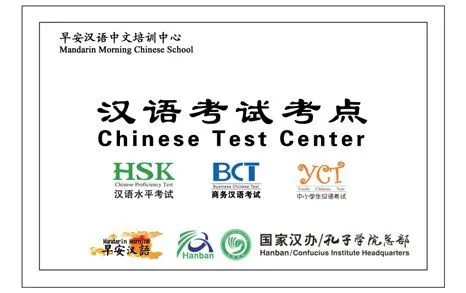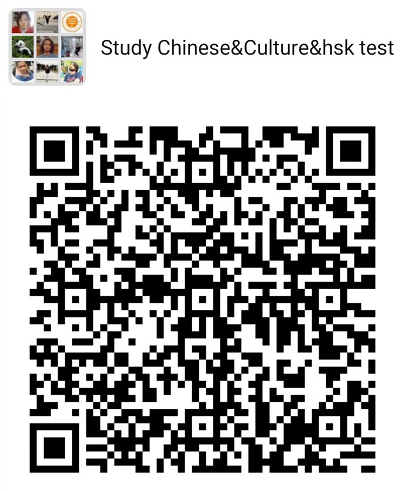| Particles don’t exist in English, but they’re important in Chinese—especially the Chinese 呢 (ne). This tiny word has no direct meaning in English but serves a number of different functions. 呢 (ne) is a modal particle. Rather than using tenses, the Chinese language uses particles—modal and aspect particles—to convey time, such as completion, continuation and contrast. Modal particles—or 语气助词 (yǔqì zhùcí)—in particular, indicate mood and attitude and are also known as sentence-final particles because they always come at the end of sentences. But for now, all you need to know is that 呢 is a modal particle and has five major usages.  1. Asking a Reciprocal Question You probably know that 呢 is used to ask a question back at the original asker. Let’s take a look at a few more examples: A: 你好吗? (nǐ hǎo ma?) — How are you? B: 我很好。你呢? (wǒ hěn hǎo. nǐ ne?) — I’m good. And you? A: 你上个周末做什么? (nǐ shàng ge zhōumò zuò shénme?) — What did you do last weekend? B: 我在家看电影。你呢? (wǒ zài jiā kàn diàn yǐng. nǐ ne?) — I stayed at home and watched movies. What about you? 2. Asking “What About…” and “How About…” When you’re discussing a topic but want to ask about something else, you can use 呢. It’s sort of like asking a reciprocal question because while you aren’t changing the topic of the conversation completely, you’re directing it to another object. That probably sounds a bit confusing, because the closest translation we have of this in English is “what about…” or “how about…”. Let’s take a look at some examples using 呢 in this way: 这个很好。那个呢?(zhè ge hěn hǎo. nà ge ne?) — This one is good. What about that one? 你的哥哥有工作。弟弟呢?(nǐ de gēge yǒu gōngzuò. dìdi ne?) — Your older brother has a job. What about your younger brother? 这个星期我没有空。下个星期呢?(zhè ge xīngqī wǒ méi yǒu kòng. xià ge xīngqī ne?) — I don’t have time this week. How about next? 3. Asking “Where” Did you know that you can form a “where” question without using the words 哪里 (nǎ lǐ) or 在哪 (zài nǎ) — where? How? With the modal particle 呢. Using 呢 at the end of a statement is a more advanced and native way of asking where something is. The good news is that this structure is super easy to form. All you have to do is place 呢 after an object. For example: 钱呢?(qián ne?) — Where is the money? 你妹妹呢?(nǐ mèimei ne?) — Where is your little sister? 我的衣服呢?(wǒ de yīfu ne?) — Where are my clothes? 4. Making Conversations and Sentences Casual If you’re talking to a friend, you don’t want to talk to them the same way that you’d speak to a stranger. For this reason, you’ll want to make sure your friend knows you’re being casual with them. Luckily, speaking in different honorific levels isn’t near as hard as it is in other Asian languages like Korean, which uses verb conjugations to indicate the level of speech. Instead, one of the easiest ways you can make your conversations casual is by attaching 呢 at the end of a sentence or two. You can think of 呢 in these kinds of sentences as “so…” in English. For example: 你为什么不吃肉呢?(nǐ wèi shénme bù chī ròu ne?) — So why don’t you eat meat? 你喜欢什么样的运动呢?(nǐ xǐhuān shénme yàng de yùndòng ne?) — So what kind of sports do you like? 5. Continuation and Contrast If you want to make it clear that a situation is ongoing or still happening at present time, simply string 呢 onto the end of your statement. 他还在家里呢。(tā hái zài jiā lǐ ne.) — He is still at home. 她正在睡觉呢。(tā zhèng zài shuì jiào ne.) — She is sleeping. If you want to contrast two different things, you can also use 呢. To do so, the object or highlight that you want to compare needs to be established before the second. 他现在喜欢看书,但是他以前不喜欢呢。(tā xiànzài xǐhuān kàn shū. dànshì tā yǐ qián bù xǐhuān ne.) — He likes to read books. He used to not. #Our teachers # More than 10 years teaching experience Master Degree Certificate for teaching chinese as a foreign language  # About us # Founded in 2007 Chinese test and training center 200+ Chinese teachers 5000+ students  # Contact us# Name:fiona Phone number:021-52287809,13918358891 E-mail:info@mandarinmorning.com www.mandarinmorning.com If you are interested to join Mandarin Morning school or want more details about our services, scan the following QR code. ☟  Mandarin Morning Chinese test center attached to Confucius institute headquarters Authorized Test Center and Training Center for International Chinese Language Teacher Certificater 10 years+ ,200 teachers ,more 10000 students,200+companies  |